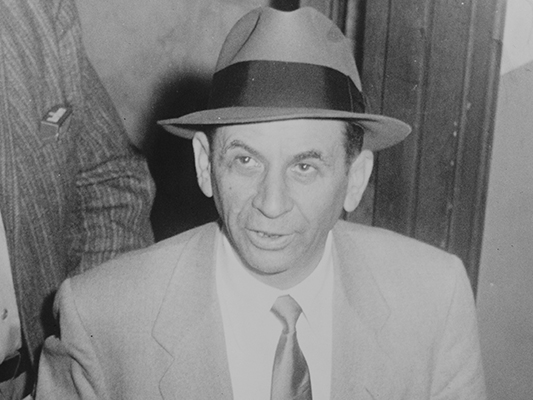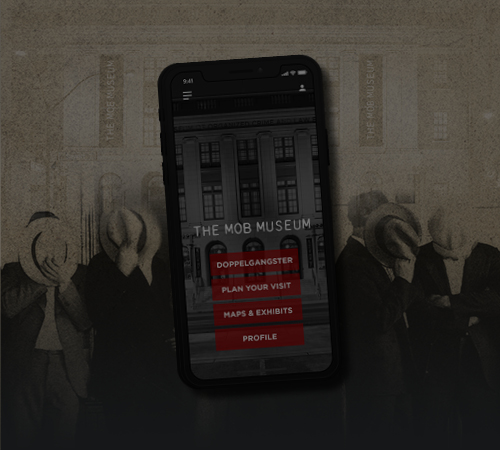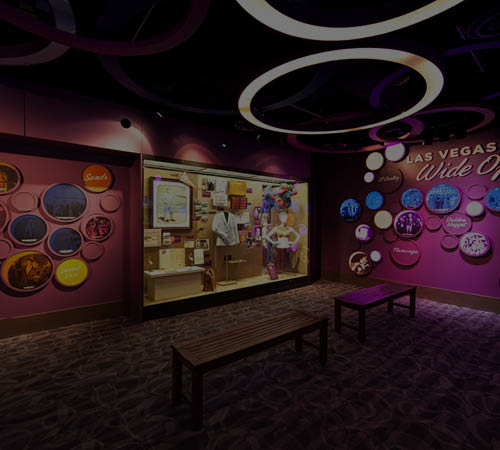Meyer Lansky

Born: July 4, 1902, Grodno, Belarus (then the Russian Empire)
Died: January 15, 1983, Miami
Nicknames: The Mob’s Accountant, Secretary of the Treasury
Associations: The Commission, Charlie “Lucky” Luciano, Murder Incorporated, Benjamin “Bugsy” Siegel, Moe Dalitz, the Outfit, the Flamingo, the Hotel Nacional and Habana Riviera (Cuba)
Meyer Lansky, born Maier Suchowlansky or Suchowljanksy, was one of the most important figures in the development of organized crime in New York, nationwide and worldwide in the 20th century.
Immigrating with his family from Imperial Russia in 1911, Lansky’s work spanned the pre-Prohibition days of the New York City rackets, where he had an early partnership with Benjamin “Bugsy” Siegel, to the consolidation of the New York Mob under Charlie “Lucky” Luciano, and on to the development of Las Vegas and Havana, Cuba, as “open cities” for the Mob. He controlled casinos in the Bahamas and in London, as well as, reportedly, a Swiss-based bank through which he laundered profits.
Lansky was a short, even-tempered man who provided a calmer counterbalance to hot-headed Mob members. He was a key figure in the Jewish wing of the Italian-Jewish Mob that became known as the American Mafia.
Lansky was often referenced as the behind-the-scenes financier who avoided the limelight and the publicity that came with open violence, but his early career was associated with the violent bootlegging Bugs and Meyer Gang, which he formed with Siegel, and with Luciano’s violent takeover of the New York Mafia with the murders of Joe “The Boss” Masseria and Salvatore Maranzano in 1931. Lansky’s close association with Luciano propelled him to the top of Mob leadership in the United States.
After Prohibition ended in 1933, Lansky successfully parlayed his fortune into gambling interests around the United States (and ultimately internationally). He encouraged other mobsters to invest in Cuba, where eventually he owned or had financial interest in at least three casinos: the Habana Riviera, the Hotel Nacional and the Montmartre Club. In the 1940s, Lansky also began investing in Las Vegas casinos, and assigned his friend Siegel to oversee construction of the Flamingo Hotel.
That project did not go well, at least initially. Cost overruns ballooned the budget from $1.2 million to $6 million, and some of Lansky’s fellow Mob investors were unhappy. Some believed that Siegel, who also tightly controlled income from the telephone “race wire” providing sports results to bookie parlors and casinos, was stealing a portion of their investment.
Several chroniclers claim that Lansky, at a Havana meeting of leading organized crime figures from across the United States, approved of Siegel’s assassination, which occurred on June 20, 1947. Although he never openly admitted to approving the hit, Lansky said that if it had been up to him, Siegel never would have been killed – as close to an expression of remorse as you would find from any of the Mob. Other theories surrounding Siegel’s murder suggest Lansky had nothing to do with it.
Either way, Lansky’s associates immediately took over the Flamingo upon Siegel’s death, and the property generated income for Lansky and others for decades.
It was around the time of these Syndicate meetings that Lansky allegedly made the famous comment that the American Mafia was “bigger than United States Steel,” at one time the world’s largest corporation. The quote was also used by the fictional character Hyman Roth in the film The Godfather, Part II. Lansky is widely viewed as the inspiration for the Roth character.
Lansky’s gambling operations ran into a multimillion-dollar disaster with the Cuban Revolution of 1959. Rebel leader Fidel Castro nationalized all of Lansky’s casino interests on the island. Lansky also suffered from crackdowns on illegal gambling in the United States, including casinos in Florida.
Despite his efforts to conceal income, in 1970 Lansky was indicted on federal tax evasion charges. He and his family fled to Israel under the Jewish nation’s “right of return,” but that right did not extend to criminals. Lansky returned to the United States and was arrested in the Miami International Airport.
Lansky was ultimately acquitted or had charges dropped against him, in part because of chronic ill health. He had suffered his first heart attack more than a decade earlier.
Lansky lived in Miami until his death of lung cancer in 1983. Federal authorities claimed the mobster still had hidden wealth to the tune of $300 million, but Lansky himself, the man who built and sold casinos like chess pieces, said he was nearly broke. At the time of his death, he had less than $35,000 in his bank account.




